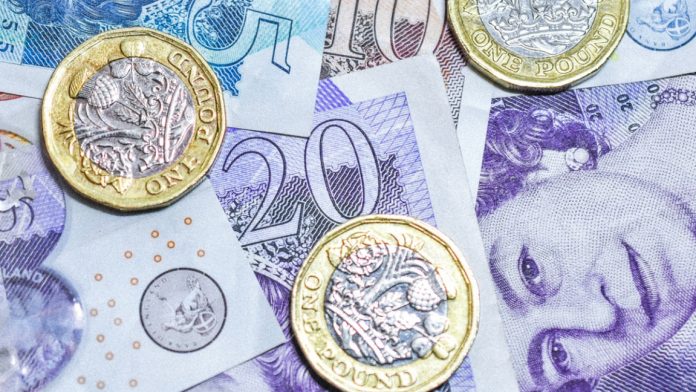- Pound (GBP) falls after services PMI misses expectations
- UK economy is expected to fall into recession later this year
- Euro (EUR) rises on hawkish Lagarde comments
- German GDP & GFK consumer confidence due
The Pound Euro (GBP/EUR) exchange rate is rising after steep losses in the previous session. The pair settled -0.85% on Tuesday, at €1.1671 after trading in a range between €1.1643 – €1.1796. At 05:45 UTC, GBP/EUR trades +0.34% at €1.1711.
The pound tumbled across the board on Tuesday after disappointing business activity data. The closely watched flash S&P Global/ CIPS manufacturing and services PMIs were released and revealed that manufacturing PMI dipped to 54.9, down from 55.5 in April and below forecasts of 55.3.
Meanwhile, the services PMI plunged to 51.8 in May, down from 58.2 in April and well below the 55 forecast. The data shows business activity slowing considerably as higher prices hit services and supply chain disruptions hurt manufacturing.
The data adds to concerns that the UK economy could tip into recession later this year. The data will come as a huge concern to the Bank of England, which needs to raise interest rates in order to tame 40-year high inflation at the same time as the economy is stagnating.
There is no high-impacting UK data due to be released today.
The euro continued to charge higher in the previous session after European Central Bank Governor Christine Lagarde made more hawkish comments. Lagarde said that she wouldn’t rule out a 50 basis point rate hike if it were required.
Her comments come after yesterday’s announcement that the ECB would likely lift interest rates out of negative territory by the end of September, with asset purchases set to end at the beginning of Q3.
The hawkish comments overshadowed weaker-than-expected PMI data. The composite PMI fell to 54.9, down from 55.8 and below the 55.3 forecast.
Attention will now turn towards German GDP data, which is expected to confirm growth of 0.2% quarter on quarter in the first three months of the year.
Separately German consumer confidence is expected to stabilize at -26 in June, up slightly from -26.5 in May.





